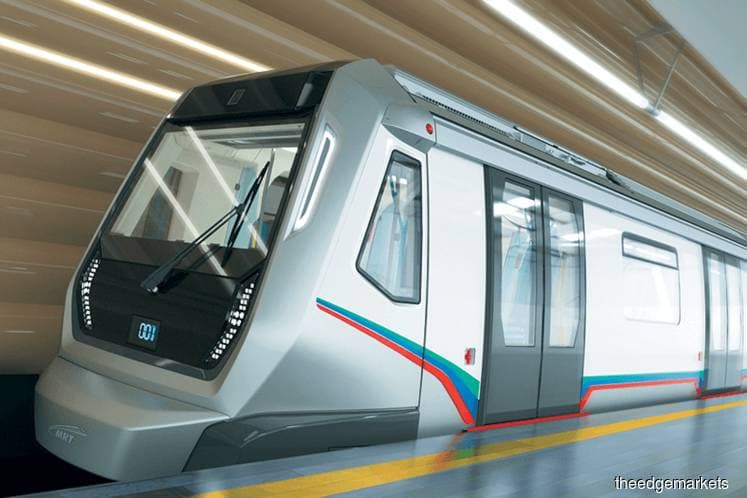This article first appeared in The Edge Malaysia Weekly on June 29, 2020 - July 5, 2020
GAMUDA Bhd’s earnings for the third-quarter ended April 30, 2020, were the lowest in a decade, hit by the lack of work activity during the Movement Control Order (MCO) in March and April.
Although construction work has since restarted and many expect Gamuda to report stronger earnings in the fourth quarter, analysts say the company lacks near-term catalysts.
A major reason is that while Gamuda has benefitted from a number of major infrastructure projects rolled out over the years, these larger jobs may be put on the backburner in favour of smaller ones to quickly kick-start the economy. As the Covid-19 pandemic has significantly damaged the country’s economic health, the government has been urged to channel its limited resources to projects that can provide a more immediate boost to the economy.
“While Gamuda is a beneficiary of major infrastructure project rollouts due to its strong track record, we believe the government’s near-term focus will be on the smaller project rollouts, which have a shorter lead-time; thus, their multiplier impact is more immediate,” says Maybank Investment Bank Research in a recent report.
One closely watched mega infrastructure project is Mass Rapid Transit Line 3 (MRT3). Finance Minister Tengku Datuk Seri Zafrul Abdul Aziz told The Edge in a recent interview that the MRT3 project “will go on”, as will the other large scale infrastructure projects.
Still, an official decision is pending.
Kenanga Research says in a report that Gamuda’s management is certain that MRT3 is the most effective way to keep the construction space supportive of the economy and is in ongoing talks with the government.
“Gamuda is confident of hitting the ground running in about three months if the project is to be awarded to it directly compared with 12 to 18 months if the project is to be awarded via an international tender,” adds AmInvestment Bank Research.
Meanwhile, Gamuda’s signing of a project delivery partner (PDP) agreement with the Penang government for the Penang Transport Master Plan (PTMP) development has been delayed and is now expected to take place in the third quarter.

Reclamation work — estimated at RM8 billion — for a smart industrial park on the 2,300-acre Island A is poised to start in the first quarter of next year.
The Penang government is considering two funding options, says AmInvestment Bank Research, one being commercial loans from banks and the other, a deferred payment scheme.
“Under the deferred payment scheme, the appointed contractor is required to come up with RM2.5 billion to RM3 billion to fund the reclamation of the 790-acre Smart Industrial Park on the 2,300-acre Island A. Once
completed, the state government will sell the industrial park,” explains AmInvestment Research. “The cash flow and profit raised from the sale of the industrial park will be used to pay the contractor and also ploughed back to fund further reclamation works under the Penang South Reclamation project, as well as the LRT (light rail transit) and Pan Island Link highway under the PTMP project.”
The research house does not share Gamuda’s optimism over the project because there is a lack of clarity on its funding.
In its 2019 Annual Report, Gamuda said the proceeds from the [proposed] disposal of all its interests in the toll highway concessions of Lebuhraya Shah Alam (Kesas), Lebuhraya Damansara-Puchong (LDP), Sistem Penyuraian Trafik KL Barat (Sprint) and the SMART Tunnel to the government would be “timely for the necessary investments” it has to commit to in its role as the PDP of the PTMP and the Penang South Islands projects.
Gamuda has a 43.56% stake in publicly traded Lingkaran Trans Kota Holdings Bhd (Litrak), which controls the three highways and tunnel. The sale price for Gamuda’s stake was placed at RM2.36 billion.
However, the sale is now unlikely to happen given the unexpected change in government in March, raising the question of how Gamuda will be funding the PTMP project.
Meanwhile, Gamuda says it has sufficient work to see it through the next two years. Its order book stood at RM7 billion as at April 30, 2020, and unbilled property sales totalled RM3 billion.
In FY2019, Gamuda’s construction and engineering division contributed 57% to revenue, and its property division, 35%. The remaining 8% came from its concession business.
The concession business, however, contributed a substantial 29% to net profit, after property development (37%) and construction and engineering (34%).
Gamuda saw revenues of RM7.18 billion and a net profit of RM706 million in FY2019.
For the cumulative nine months ended April 30, it registered a net profit of RM389.02 million, 25% less than a year ago, while revenues were also lower at RM2.74 billion, down 11% from the previous year.
Currently, there are seven “buy”, nine “hold” and three “sell” calls on the counter, with an average target price of RM3.61.
Last Thursday, Gamuda closed at RM3.45, valuing the company at RM8.67 billion.
Save by subscribing to us for your print and/or digital copy.
P/S: The Edge is also available on Apple's AppStore and Androids' Google Play.

